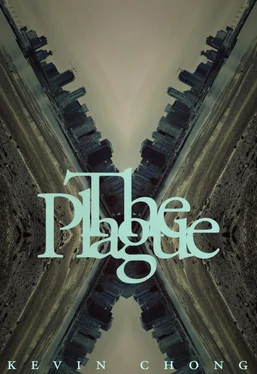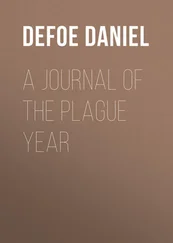Rieux was pleased by her reaction to The Peony Pavilion. While he found himself drifting in and out of the performance, it would not be fair to say that it had left him unaffected. Throughout the opera and the ride home, his mind latched onto the idea of lovers existing outside of time and space. Wasn’t it simply a fanciful notion rooted in anguish?
People fell in love at the wrong time, all the time.
People fell in love out of time, all the time.
The city was full of people still in love with ghosts. Always, but now more than ever. And ghosts waiting to be reborn and reunited.
_________
For Rieux, his days at the clinic swung so far back in the direction of normalcy that it felt like another type of abnormal. During the quarantine, Rieux had noticed not only a drop in volume, but an outright reluctance in patients with everyday ailments and chronic conditions to come in. No one wanted to go to the doctor unless they feared their lives were at risk. With the reopening of the city in sight, his office was crowded with patients with asthma or hepatitis C.
Rieux completed one day at the clinic with his favourite patient, Walter, whom he saw for the first time since Rieux had visited his home. He noticed that Walter had added another band of red marks to his arm as the days of quarantine continued. As idle chatter during the exam, the doctor asked Walter whether he had any trips planned for after the reopening. Walter told him that he’d had been evicted from his apartment. He had a week to find a new home at a fixed price range or stay in a shelter.
“Things were better when everyone was afraid—they were too busy to hurt me,” Walter said. “Now that everyone is returning to normal, it’s back to survival mode.”
Rieux didn’t know what to say. He placed one hand on Walter’s arm and held it. Afterwards, he renewed his prescription for medication to treat hypertension. He would take more time with Walter if he needed it. Rieux had gotten behind with waiting patients a few times that day, which cut into his break and lunch. He blamed the end-of-day fatigue on his lack of rest and food.
“You look pale,” Walter told the doctor when he uncuffed the blood pressure monitor. “Drink some milk.”
Back home, he told Mrs Rieux that he was tired from his work day and she shouldn’t worry. He admitted later that he had been feeling weak for the past several days, but Tso and Grossman were expected for dinner that night. They needed to distribute leftover money that had been donated to the Sanitation League, and there were several options to be discussed. Rieux remained in bed until woken by his mother, then changed back into his clothes and sat slumped on the couch, a cup of warm water in his hands, while his mother prepared the meal.
His guests arrived. Grossman yelped upon encountering Rieux and his ashy complexion. “Doc, you’re not looking good,” she told him. “Let me show you.” She took his flash photo on her Samsung Galaxy and presented him with the image. “We need to take you to the hospital.”
Even as Rieux suggested that it could be “just the flu,” he realized how he sounded. When he stood up, he felt dizzy. He saw his bag by the door and staggered toward it. He removed a white plastic stick that looked like a home pregnancy test. Grossman helped him to the bathroom.
“We’ll know for sure in fifteen minutes,” he said when he returned to the living room.
He held the stick in both hands. Everyone watched the clock, repeating the same thought, It has to be the flu. It doesn’t make sense to get it now. A red line appeared over the positive sign. His eyes lidded, and he began to blink erratically.
“It’s true,” he said. “It’s true.”
_________
An ambulance was called. Tso accompanied Mrs Rieux, who remained in her son’s field of vision at all times, to the hospital. He was sent directly from the Emergency Room to the Intensive Care Unit, where he was given the new antibiotics that were more effective in treating patients during the recent rounds of the disease. He slowly took in the room, the monitors, the lines attached to him. Seeing that everything was in place allowed him to relax.
“What’s my prognosis?” he asked Tso.
Mrs Rieux looked to Tso.
“I’m not a doctor,” Tso said.
“That’s why I like you.”
He closed his eyes and slept. It was past ten o’clock. Tso told Mrs Rieux to go home. She assured her that she would remain by her son’s side. Who knew how long it would last? Tso called Grossman and asked her to drive the doctor’s mother home. She knew Mrs Rieux needed to rest.
Tso pulled up her chair and scrolled through social media on her iPhone. She needed to save battery life in case Mrs Rieux called. Rieux slept with his head to the side. His legs were almost hairless. They were strong and lean, like statuary—his arms, too. Her eyes darted past the egg-shaped lumps that had formed on the sides of his neck. He had a scar under his eyebrow, a white horizontal line. She’d never gotten around to asking him about it.
Nurses came and went. She was too worried to ask the doctors anything. Dr Castello stopped by—as a visitor—and told Tso that Rieux was being treated for both the bubonic and pneumonic versions of the disease. He had been exposed to the illness for months. Why now? Was it possible for his body to have resisted it until he completed his work? Tso wondered.
Castello said she would visit again and left. She seemed uncomfortable with Rieux as a patient. An hour passed. Tso closed her eyes. By the time they fluttered open, another three hours had vanished.
Rieux had been making a whimpering sound. People afflicted with the disease typically flailed and screamed. Rieux suffered the way he lived: he was reserved, still, stoic. He kept his arms by his side and his jaw set.
His eyes remained fixed ahead as though he were a tightrope walker unwilling to look at the ground. Tso moved to the side of the bed and leaned over so he could see her face. His pupils slowly adjusted. With great effort, he wrenched his mouth out of a pained wince. If he couldn’t force a smile, he was able to create an unflappable expression.
“Where’s my mother?” he asked.
“Janice drove her home. I told her to get some rest.”
He closed his eyes. “That’s good. I’m thirsty.”
She offered him water from a cup, guiding the straw onto his colourless bottom lip. He thanked her. He began to say something but let out a moan. He tried again, with the same result. She realized that he only wanted to talk so he could hear other voices. She pulled up her chair and began to speak. First, she related the plotline of a TV show she’d watched the other night. One character reminded her of Siddhu. She relayed details of her last conversation with the reporter. She wished she had a book she could read to Rieux.
He fell asleep. She drifted off too and woke up when Mrs Rieux arrived. Grossman followed her into the room with a bag that contained family photos and the iPhone charger that Tso had requested. Rieux was awake and looked comfortable. He had adjusted the bed so he was sitting upright.
“It’s just a lull,” he told them.
Rieux spoke as though he were holding an invisible stopwatch as he raced through his instructions. He explained that he wanted to be cremated and his ashes scattered into the water at Locarno Beach. He did not want a funeral service. His will was located in a safety deposit box at his bank. He left some money for his mother’s care, but the rest would go to Elyse. There was also a small life insurance policy.
He plowed through these orders, ignoring Tso and Mrs Rieux’s repeated pleas to relax. Rieux glared at Tso and told her she needed to write down his instructions. He could still make people do things. She removed her pen and some scrap paper from her bag. Finally, Rieux added, he needed Tso to contact Elyse.
Читать дальше












